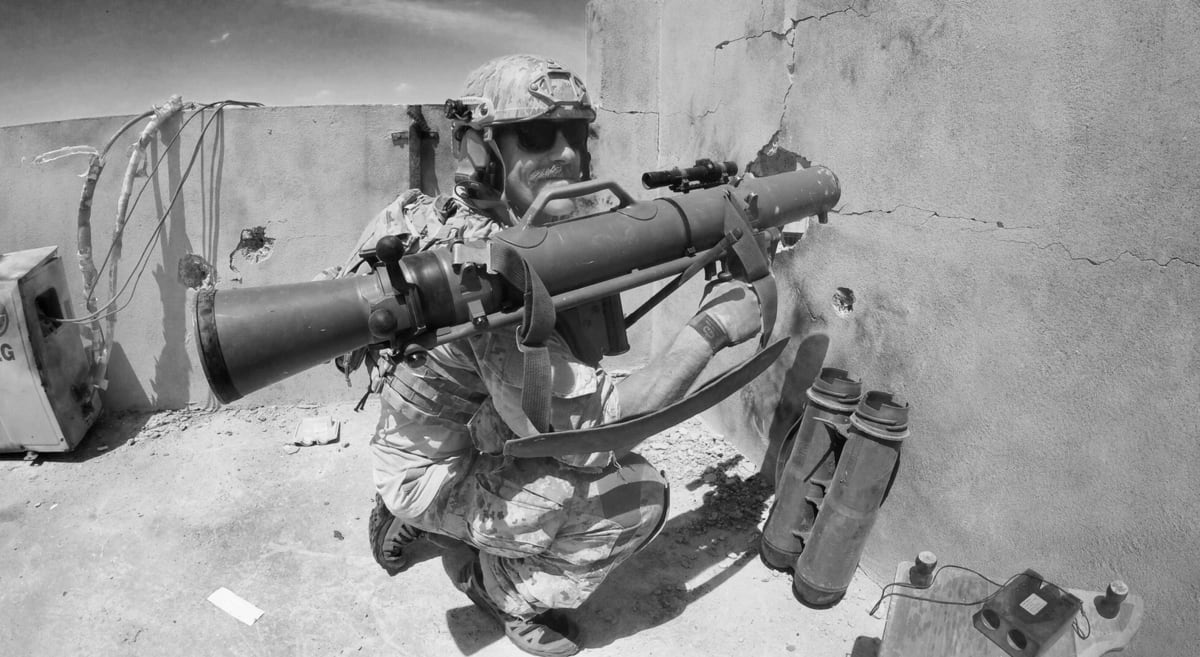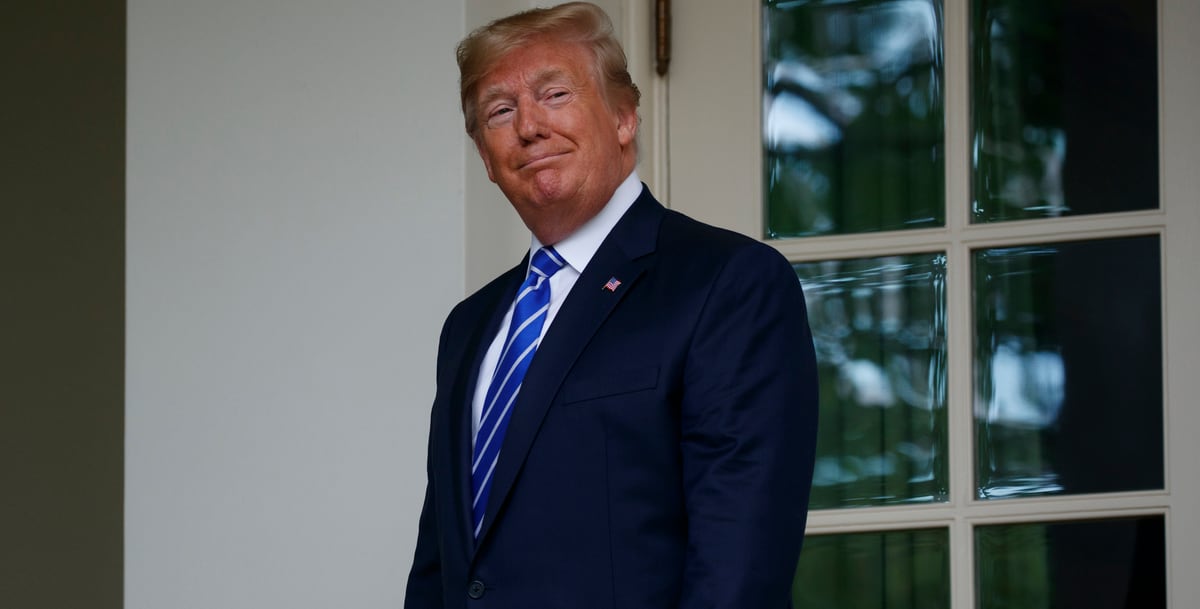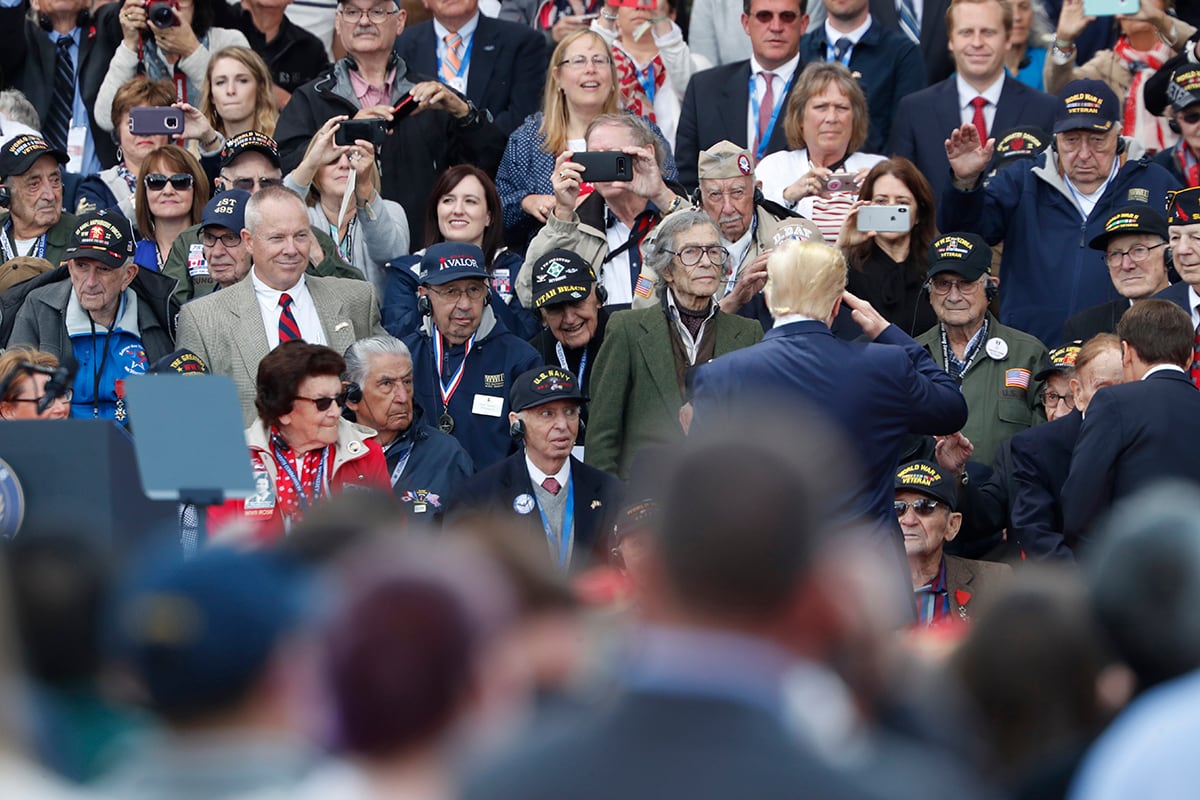President Donald Trump on Friday granted clemency to three controversial military figures embroiled in charges of war crimes, arguing the moves will give troops “the confidence to fight” without worrying about potential legal overreach.
Army 1st Lt. Clint Lorance, convicted of second degree murder in the death of two Afghans, was given a full pardon from president for the crimes. Army Maj. Mathew Golsteyn, who faced murder charges next year for a similar crime, was also given a full pardon for those alleged offenses.
Special Warfare Operator Chief Edward Gallagher, who earlier this fall was acquitted of a string of alleged war crimes, had his rank restored to Chief Petty Officer by the president.
RELATED

All three cases had been championed by conservative lawmakers and media personalities as an overreaction to the chaos and confusion of wartime decisions. But critics have warned the moves could send the message that troops need not worry about following rules of engagement when fighting enemies abroad.
“The President, as Commander-in-Chief, is ultimately responsible for ensuring that the law is enforced and when appropriate, that mercy is granted,” the White House said in a statement. “For more than 200 years, presidents have used their authority to offer second chances to deserving individuals, including those in uniform who have served our country.
“These actions are in keeping with this long history.”
Pentagon leaders privately had expressed reservations about the moves, but Defense Secretary Mark Esper has declined comment on the rumored actions in recent days.
Last week, he said that he had a “robust” conversation with Trump about the proposed pardons and clemency and that “I do have full confidence in the military justice system and we’ll let things play out as they play out.”
RELATED

The Army announced it will implement Trump’s pardons.
“Under the Constitution, the president has the power to grant pardons for federal offenders; that authority extends to military court-martial proceedings,” the Army announced in a statement.
"The Army has full confidence in our system of justice. The Uniform Code of Military Justice ensures good order and discipline for uniformed service members while holding accountable those who violate its provisions. The foundation of military law is the Constitution, and the Constitution establishes the President’s power to grant pardons.
“The Army will review today’s executive actions in order to implement the presidential orders.”
In the wake of Trump’s decision, the official twitter account of Rear Adm. Charles Brown, the Chief of Naval Information, indicated that Navy leaders “acknowledge his order and are implementing it.”
While Gallagher was acquitted of murder and obstruction of justice charges in July, a panel of his peers recommended he be reduced in grade for posing with the body of a detainee, a crime he never denied.
Lorance’s case dates back to a 2012 deployment to Afghanistan, when he ordered his soldiers to fire on three unarmed men riding a motorcycle near their patrol. Members of his platoon testified against him at a court-martial trial, describing Lorance as over-zealous and the Afghans as posing no real threat.
He was sentenced to 19 years in prison at Fort Leavenworth, Kansas. In recent years, Lorance and his family had waged a long campaign against his sentence, and found a receptive ear in Trump.
Golsteyn’s case had not yet been decided. He was scheduled for a December trial on charges he murdered an alleged Taliban bomb maker, and burned his remains in a trash pit during a 2010 deployment with 3rd Special Forces Group. Trump’s action effectively puts an end to that legal case before any verdicts were rendered.
RELATED
The president called Gallagher at around 4 p.m to personally deliver the news, according to the SEAL’s attorney Timothy Parlatore.
“We’re extremely grateful to the president for his decision to right the wrongs committed by the Navy’s criminal justice system against Chief Gallagher,” Parlatore told Navy Times Friday evening. “But this also was a case that should’ve been dismissed by the Navy at an earlier date. The misconduct by NCIS and military JAG prosecutors should’ve been handled a long time ago by the Navy. The commander in chief was right to assert his leadership to right this wrong.”
Trump overturned a decision by Chief of Naval Operations Adm. Mike Gilday announced on Oct. 29 that preserved Gallagher’s demotion to petty officer first class. Gallagher’s legal team had urged the four-star to show mercy for a highly decorated SEAL whose case was plagued by allegations of corruption inside the Judge Advocate General’s Corps and the Naval Criminal Investigative Service.
Gallagher’s court-martial trial for murder and other alleged war crimes collapsed and a panel of his peers convicted him on the sole charge of positing for a photo next to a dead Islamic State detainee, a charge he never denied.
Before the trial kicked off, a military judge booted Cmdr. Christopher Czaplak, the lead prosecutor, for his role in a warrantless surveillance program cooked up with NCIS to track emails sent by defense attorneys and Navy Times.
Prosecutors and agents also were accused of manipulating witness statements; using immunity grants and a bogus “target letter” in a crude attempt to keep pro-Gallagher witnesses from testifying; illegally leaking documents to the media to taint the military jury pool; and then trying to cover it all up when they got caught.
“The fight for Eddie Gallagher has been long and intense, but it never should’ve gotten to this point,” said Parlatore. “What the president’s action indicates is that there are service members who have been unjustly targeted by the military criminal justice system, and Eddie and I look forward to working to reform these problems on their behalf.”
RELATED

Fox News and Navy Times both reported on Nov. 4 that the president had decided to restore Gallagher to chief.
Later Friday night, the social media sites helmed by Gallagher’s wife, Andrea, carried a statement attributed to her husband that thanked both the president for his intervention and the “American people for their unwavering support" over the past year.
He said that the United States is blessed to have a commander in chief who “stands up for our warfighters and cares about how they and their families are treated.”
In a prepared statement sent to Military Times by attorney Phil Stackhouse, Golsteyn’s family said they were “profoundly grateful” that the president ended the soldier’s prosecution.
Stackhouse said Golsteyhn spoke with the president by telephone “for several minutes” on Friday.
“We have lived in constant fear of this runaway prosecution," Golsteyn said in the statement. "Thanks to President Trump, we now have a chance to rebuild our family and lives. With time, I hope to regain my immense pride in having served in our military. In the meantime, we are so thankful for the support of family members, friends and supporters from around the nation, and our legal team.”
Stackhouse pointed to an Army Board of Inquiry that cleared the major for his alleged misconduct tied to the ambush of the Taliban bomb maker. He said Golsteyn’s legal team remained confident “we would have prevailed in trial, but this action by the president expedited justice in this case.”
"Maj. Golsteyn should have been medically retired years ago because of service-related injuries and allowed to move on with his life and family. Instead, the Army secretly pursued him for seven years. The origination and true motivation of this prosecution remains a mystery. We urge the Army to learn from this flawed, compromised prosecution and prevent similar abuses in the future.”
RELATED

We laud the President’s decision – which he made as Commander-in-Chief and general courtmartial convening authority under the Uniform Code of Military Justice (UCMJ) as justice for Clint Lorance," said John Maher, one of his attorneys, in a statement. “We see the President’s decision as a broader victory for those who work to ensure our military justice system does not sacrifice our warriors to political and international whims.”
Trump has exercised his pardoning powers often during his administration, including in the case of another soldier earlier this year.
Former 1st Lt. Michael Behenna had been paroled from Leavenworth in 2014, after receiving a 15-year sentence for murdering an alleged al-Qaida operative in Iraq in 2009.
And in 2018, he pardoned former Machinist’s Mate 1st Class Kristian Saucier, who spent a year in jail after pleading guilty in 2016 to taking cell phone photos of his work space on board the attack submarine Alexandria ― prohibited, as the entirety of a submarine is considered a classified area.
Hina Shamsi, director of the ACLU’s National Security Project, in a statement blasted the moves by the president.
“With this utterly shameful use of presidential powers, Trump has sent a clear message of disrespect for law, morality, the military justice system, and those in the military who abide by the laws of war,” she said.
Army Times reporter Kyle Rempfer contributed to this story.
Leo covers Congress, Veterans Affairs and the White House for Military Times. He has covered Washington, D.C. since 2004, focusing on military personnel and veterans policies. His work has earned numerous honors, including a 2009 Polk award, a 2010 National Headliner Award, the IAVA Leadership in Journalism award and the VFW News Media award.
Meghann Myers is the Pentagon bureau chief at Military Times. She covers operations, policy, personnel, leadership and other issues affecting service members.
Prine came to Navy Times after stints at the San Diego Union-Tribune and Pittsburgh Tribune-Review. He served in the Marine Corps and the Pennsylvania Army National Guard. His awards include the Joseph Galloway Award for Distinguished Reporting on the military, a first prize from Investigative Reporters & Editors and the Combat Infantryman Badge.



